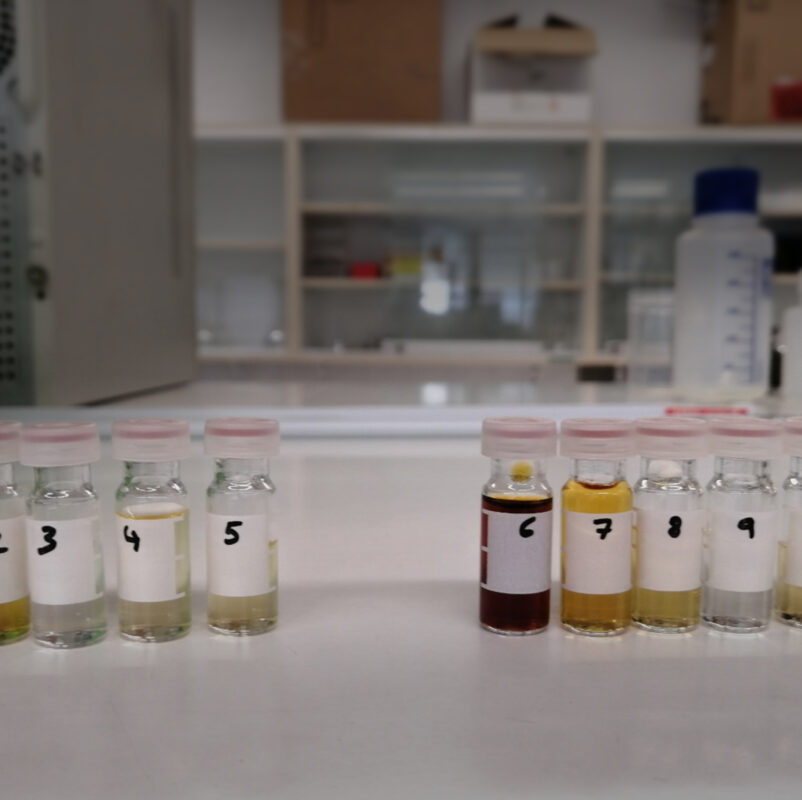The project aims to obtain a range of high added value products from lignocellulosic biomass and contribute to the development of biorefineries in Catalonia and Spain.
The Forest Science and Technology Center of Catalonia (CTFC) participates in a new project of the Ministry of Science and Innovation for the production of biofuels, fertilizers, precursors of bioplastics, and sensors from lignocellulosic biomass. The project is developed within the Mediterranean Wood Chemistry Lab of the CTFC.
Financed by the European Union’s Next Generation funds through the Recovery, Transformation and Resilience Plan, CEBIOREF is a project coordinated by the Rovira i Virgili University with the participation of the CTFC and the University of Lleida.
CEBIOREF’s aim is to achieve a wide portfolio of high added value products obtained from the lignocellulosic biomass of pine, oak, and chestnut trees using different technologies to contribute to the development of biorefineries in Catalonia and Spain. Biorefineries are processing facilities that convert biomass into chemicals, biofuels and other materials by using different technologies. The existence of biorefineries that use these lignocellulosic resources is scarce in Europe and Spain. For this reason, research for their development can be strategic, especially when based on typically Mediterranean biomass, such as the ones studied in this project.
Lignocellulosic biomass, the most abundant renewable biomass, is considered one of the main raw materials in the biorefinery concept, as its non-edible nature does not compete with food crops. The purpose of the project is to obtain biocomposites from biomass of different species of trees. The research team wants to produce platform molecules, such as hydroxymethylfurfural, furfural, or chloromethylfurfural. From these together with pyrolytic lignin, products with high added value like bioplastics and bioadhesives will be obtained for applications in various sectors such as chemical, wood construction, biofuels, agricultural, and pressure and pH sensors.
It is also planned to prepare a life cycle analysis (LCA) and an analysis of the value of the potential customer and the market with the aim of creating a map of potential biorefineries in order to implement this type of technology in Spain.
The research, in addition to providing new technical and scientific knowledge to the national and international community, is focused on the purpose of transition to the circular economy, the mitigation of climate change, and the prevention and control of pollution.
The project “Boosting circular economy through the development of biorefineries processes from local wood biomass wastes” (CEBIOREF, 7223129487-129487-28-521) is funded by MCIN/AEI 10.13039/501100011033 and by the European Union NextGenerationEU.
Last modified: 21 June 2023










